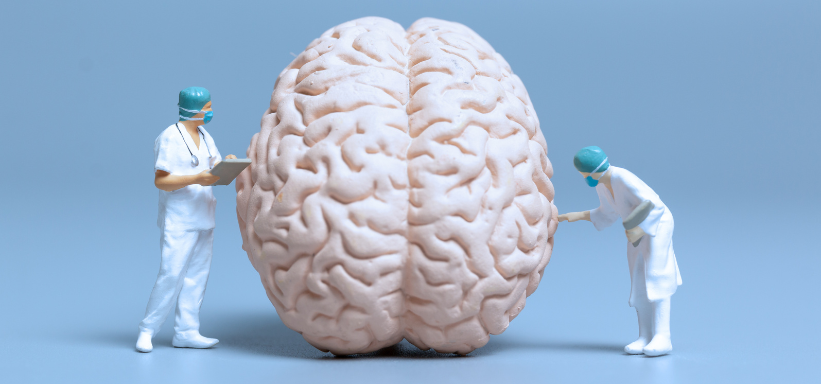When Pressure Turns into Pain

Stress is a natural part of life. Deadlines, responsibilities, and emotional strain come and go. But when stress becomes constant—without rest, support, or resolution—it stops being just a short-term challenge and starts becoming something more dangerous.
That “worn out” feeling many people try to power through? It can evolve into clinical depression if left unaddressed. Understanding the connection between stress and depression is key to interrupting the cycle before it takes a deeper emotional toll.
Stress vs. Depression: What’s the Difference?

Stress is your body’s short-term response to a perceived threat or demand. It’s what helps you focus in a crisis, meet a deadline, or prepare for a big life change. Your heart races, cortisol rises, and your brain shifts into problem-solving mode.
Depression, however, is a mood disorder marked by persistent sadness, fatigue, loss of interest, and hopelessness. It affects how you feel, think, and function for weeks or months at a time—not just during a tough moment.
The overlap? When stress is long-term and unrelenting, it can wear down the very systems that help regulate mood and emotional balance—paving the way for depression.
How Stress Leads to Depression: The Chain Reaction

Prolonged stress increases cortisol (the stress hormone), which—over time—alters brain function. It suppresses the production of serotonin and dopamine, two neurotransmitters critical for mood regulation. Low levels of these chemicals are directly linked to depression.
When your nervous system is constantly on high alert, your body becomes fatigued. Eventually, you may feel emotionally flat, disconnected, or indifferent. This emotional numbness is a common feature of depression.
Stress disrupts sleep, eating habits, and cognitive performance. Over time, poor sleep and nutrition amplify emotional instability, foggy thinking, and irritability—all hallmarks of depression.
Under chronic pressure, many people withdraw from social interactions, stop engaging in pleasurable activities, and reduce self-care—all behaviors that fuel depressive symptoms.
The longer stress persists, the more likely it is to distort your thinking. You may begin to believe:
- “I can’t handle this.”
- “Things will never get better.”
- “Something’s wrong with me.”
These cognitive distortions lay the groundwork for hopelessness and despair—core features of depression.
Who’s Most at Risk?
While anyone can develop depression after prolonged stress, certain groups may be more vulnerable, including:
- Caregivers managing chronic illness in loved ones
- Professionals in high-pressure or toxic work environments
- Students dealing with academic overload and performance anxiety
- Parents juggling work-life imbalance
- Individuals with a history of trauma or mental health issues
Stress doesn’t have to be dramatic to be damaging. Even quiet, invisible stress—like loneliness, microaggressions, or financial strain—can build up and break you down over time.
Symptoms That Signal Stress May Be Turning Into Depression
Watch for these red flags:
- Constant fatigue, even after resting
- Loss of motivation or interest in things you once enjoyed
- Feelings of hopelessness or dread
- Difficulty concentrating or making decisions
- Sleep disturbances (too much or too little)
- Changes in appetite or weight
- Thoughts of self-doubt, guilt, or worthlessness
- Avoidance of social or work obligations
If these symptoms persist for more than two weeks, it’s time to consider clinical depression—not just stress.
How to Break the Stress-Depression Cycle

Talking to a therapist or physician is often the first and most important step. They can help you identify whether you’re dealing with stress, depression, or both—and build a treatment plan that works.
Chronic stress dysregulates your nervous system. Grounding techniques like deep breathing, progressive muscle relaxation, and mindfulness can help retrain your body to feel safe again.
These three pillars of health dramatically influence mood. Prioritize:
- Consistent sleep routines
- Light daily movement (even walking counts)
- Whole foods that stabilize blood sugar and reduce inflammation
Whether it’s limiting work hours, stepping back from toxic relationships, or saying “no” to overcommitments—protecting your energy is essential for recovery.
In cases where therapy alone isn’t enough, your provider may recommend antidepressants or adjunct therapies like ketamine treatment. These options can offer significant relief—especially when stress-related depression is deeply entrenched.


Frequently Asked Questions (FAQs)
Yes. Chronic, unmanaged stress—especially without rest or support—can lead to physical and emotional exhaustion, which increases the risk of clinical depression.
It varies by individual, but when stress is persistent for weeks or months, and starts affecting sleep, energy, mood, or daily functioning, it may progress into depression.
Burnout is often work-related and centers on emotional exhaustion. Depression affects all areas of life and includes low mood, hopelessness, and loss of interest—even outside of work.
Yes. Stress can trigger both anxiety and depression together. They often overlap, with symptoms like worry, fatigue, and difficulty concentrating.
Absolutely. Long-term stress from adverse childhood experiences (ACEs) or unresolved trauma can reshape the nervous system and increase vulnerability to depression in adulthood.
In many cases, yes. If therapy and lifestyle changes aren’t enough, antidepressants or other treatments like ketamine therapy may help reset brain chemistry and reduce symptoms.
Mindfulness, exercise, journaling, social support, and setting boundaries are powerful tools for preventing stress from escalating into depression.
Mild symptoms may improve with rest and life changes, but moderate to severe depression often requires professional help. The sooner you intervene, the better the outcomes.
If stress is affecting your sleep, mood, energy, appetite, or ability to function—and these symptoms persist for two weeks or more—consult a licensed mental health provider.
Early Action Makes a Difference

Stress is unavoidable—but when it’s constant, it becomes dangerous. If your emotional balance feels off, your energy is depleted, or you’re losing interest in life’s basic joys, don’t wait for things to get worse.
Addressing these signs early helps protect both mental and physical health. Support, whether clinical or lifestyle-based, isn’t a last resort—it’s a proactive step toward resilience and recovery.





